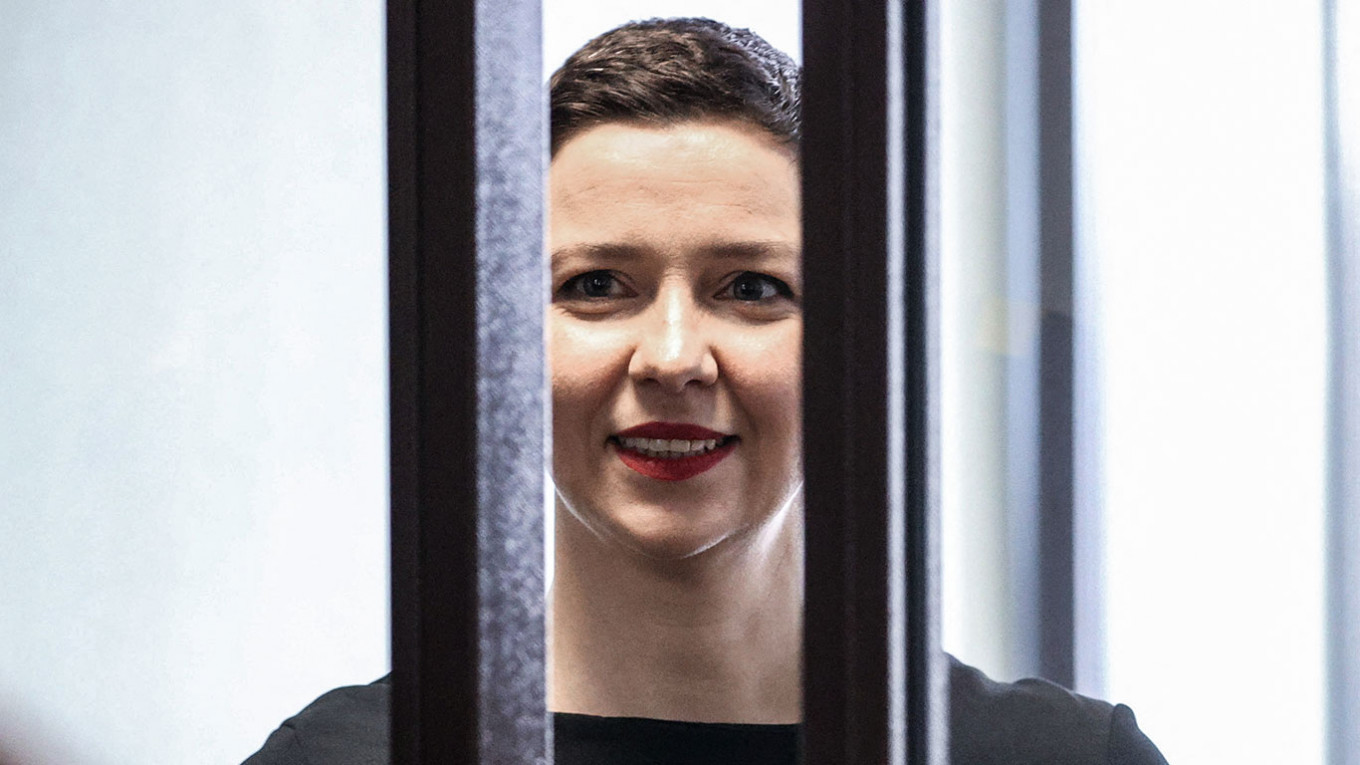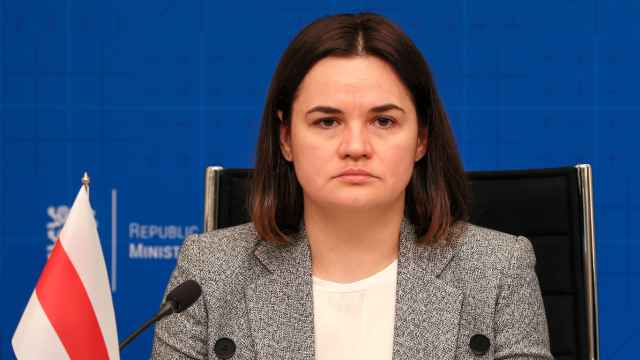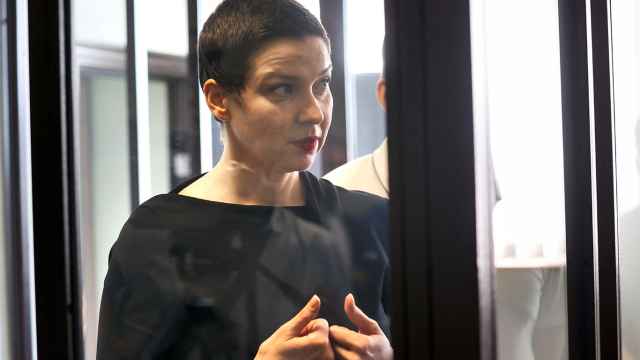A court in Belarus sentenced one of the country's most prominent opposition figures, Maria Kolesnikova, to 11 years in prison on Monday after she led unprecedented protests against President Alexander Lukashenko last year.
A defiant Kolesnikova smiled and made her signature heart-shaped hand symbol during the court hearing in Minsk, where lawyer and fellow opposition activist Maxim Znak was also handed a 10-year sentence.
During the closed-door trial authorities had accused the pair of violating national security and conspiring to seize power.
Kolesnikova, 39, is the only major leader of last year's mass protests still in Belarus and has been in custody for a year after resisting deportation by ripping up her passport.
Lukashenko, in power since 1994, has been cracking down on opponents since the protests, which erupted when he claimed victory in a disputed election.
A video from inside the courtroom showed the handcuffed pair grinning in the defendant's cage ahead of the ruling.
'Blatant disrespect'
Kolesnikova — who wore her trademark dark red lipstick and a black dress — made the heart-shaped symbol with her hands, which she often did at protest rallies.
Standing next to her, Znak pretended he was inviting an audience into a theatre.
"Dear spectators, we are happy to see you," said the 40-year-old.
The EU condemned the ruling as a "blatant disrespect" of rights and Britain said it an "assault on the defenders of democracy."
"One more parody of justice," added Lithuanian Foreign Minister Gabrielius Landsbergis.
Amnesty International said the ruling was "designed to crush the hopes" of a generation of Belarusians.
Kolesnikova — a former flute player in the country's philharmonic orchestra — has become a symbol of the protest movement in Belarus.
She had danced inside the defendant cage when the trial, which authorities said had to be closed because it contained state secrets, opened last month.
Last September, KGB agents put a sack over her head, pushed her into a minibus and drove her to the Ukrainian border.
She resisted the attempt to throw her out of the country by ripping up her passport and jumping out of the car.
Kolesnikova was part of a female trio of protest leaders along with Svetlana Tikhanovskaya and Veronika Tsepkalo, both of whom fled the country.
Tikhanovskaya, who stood for president in place of her jailed husband and claims she won the election, called the pair "heroes" after the sentencing.
"The regime wants us to see them crushed and exhausted. But look: they are smiling and dancing," Tikhanovskaya, who is now based in Lithuania, said on Twitter.
The office of one-time presidential hopeful Viktor Babaryko, whose campaign was managed by Kolesnikova, published photos of some of her supporters lining up outside the Minsk court.
Kolesnikova and Znak had worked for Babaryko, who in July was jailed for 14 years on fraud charges.
"Maria and Max went through all the stages of political persecution with dignity," Babaryko's office said in a statement.
Impassioned address
It quoted Kolesnikova's lawyer as saying that she delivered an impassioned final address to the court last week about the "future of a free Belarus."
Kolesnikova and Znak were part of a seven-member Coordination Council set up in response to the disputed August election to oversee a peaceful transition of power.
Western countries have piled sanctions on Lukashenko's regime over the treatment of opposition activists.
But the mustachioed strongman has shown no sign of stepping down and maintains the backing of key ally Russia.
He is due in Moscow this week to meet with Kremlin chief Vladimir Putin.
According to rights group Viasna, there were 659 political prisoners in Belarus as of Monday, including Znak and Kolesnikova.
Lukashenko faced a global outcry in May when a passenger plane was forced to land in Minsk and a dissident onboard was arrested.
Belarus was again in the international spotlight in August, after an athlete said her team tried to force her to leave the Tokyo Olympics and an exiled opposition activist was found hanged in a park in Ukraine.
A Message from The Moscow Times:
Dear readers,
We are facing unprecedented challenges. Russia's Prosecutor General's Office has designated The Moscow Times as an "undesirable" organization, criminalizing our work and putting our staff at risk of prosecution. This follows our earlier unjust labeling as a "foreign agent."
These actions are direct attempts to silence independent journalism in Russia. The authorities claim our work "discredits the decisions of the Russian leadership." We see things differently: we strive to provide accurate, unbiased reporting on Russia.
We, the journalists of The Moscow Times, refuse to be silenced. But to continue our work, we need your help.
Your support, no matter how small, makes a world of difference. If you can, please support us monthly starting from just $2. It's quick to set up, and every contribution makes a significant impact.
By supporting The Moscow Times, you're defending open, independent journalism in the face of repression. Thank you for standing with us.
Remind me later.






